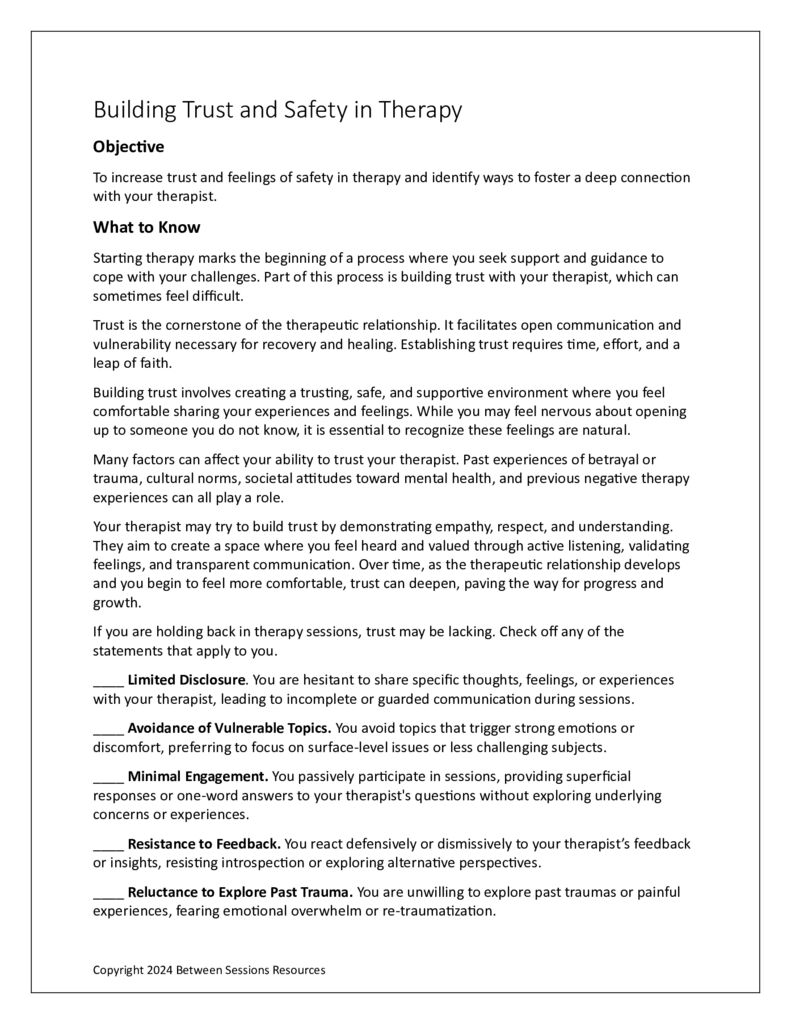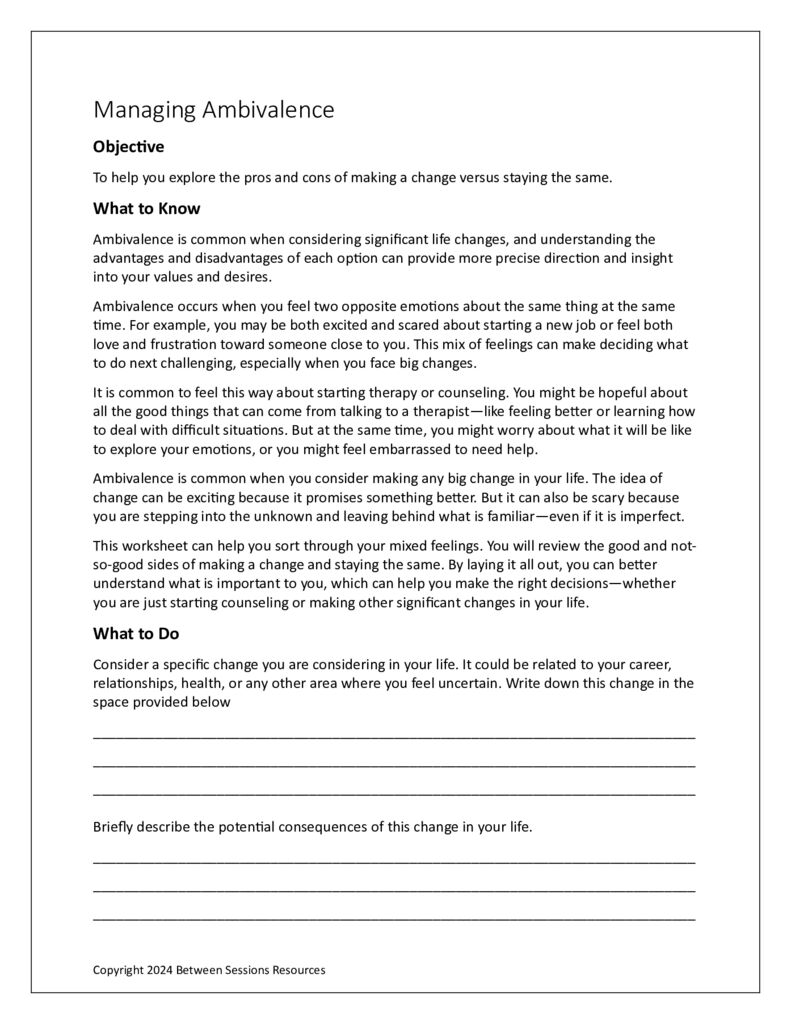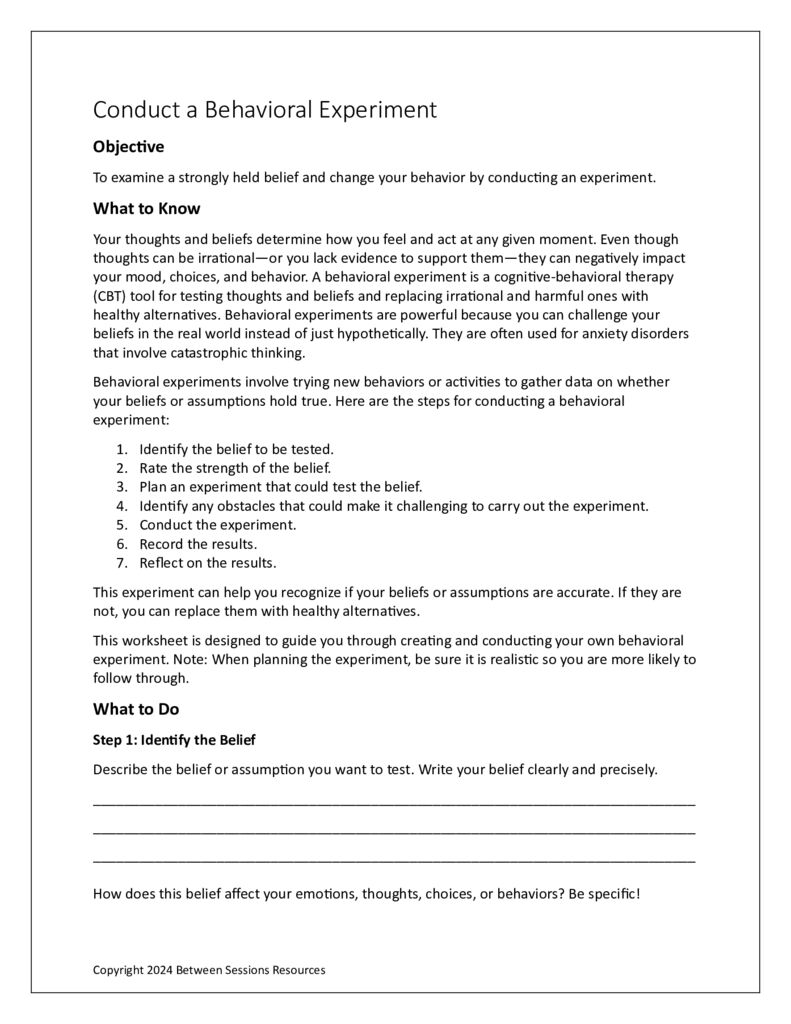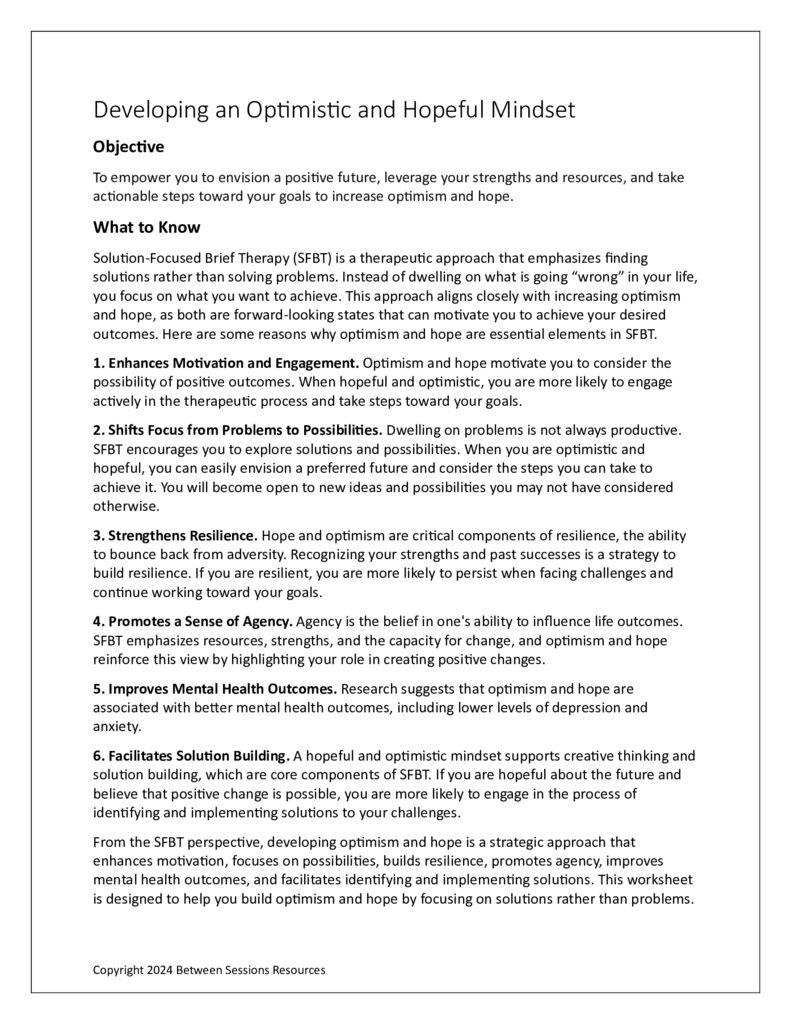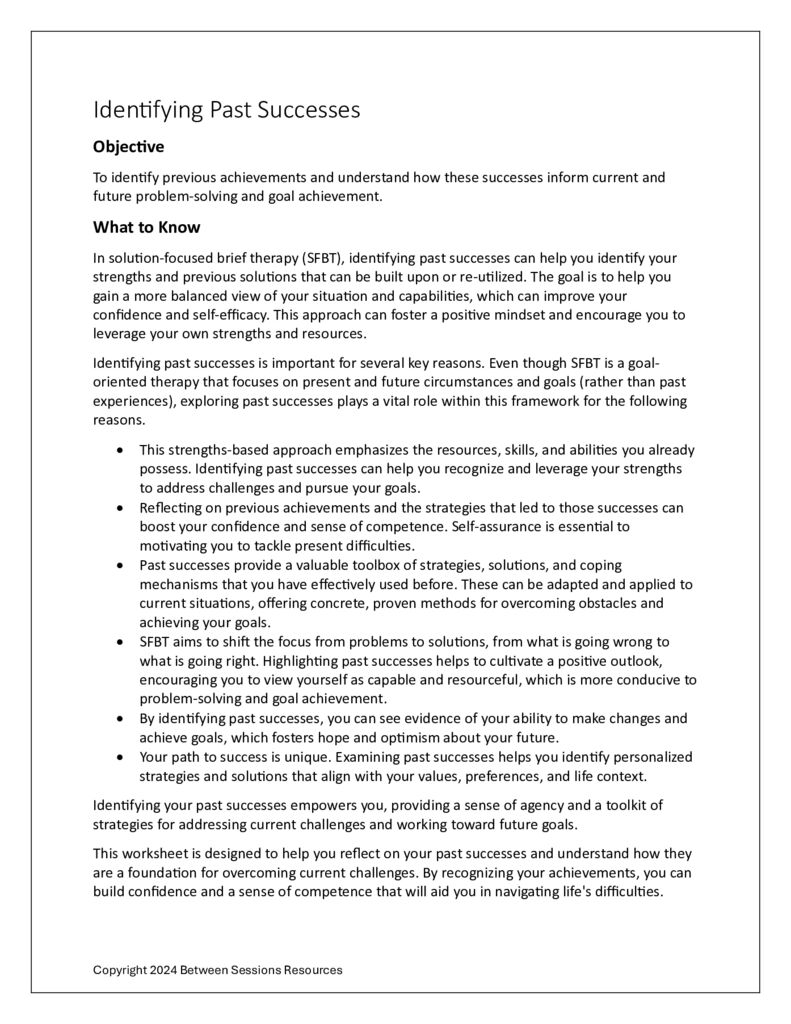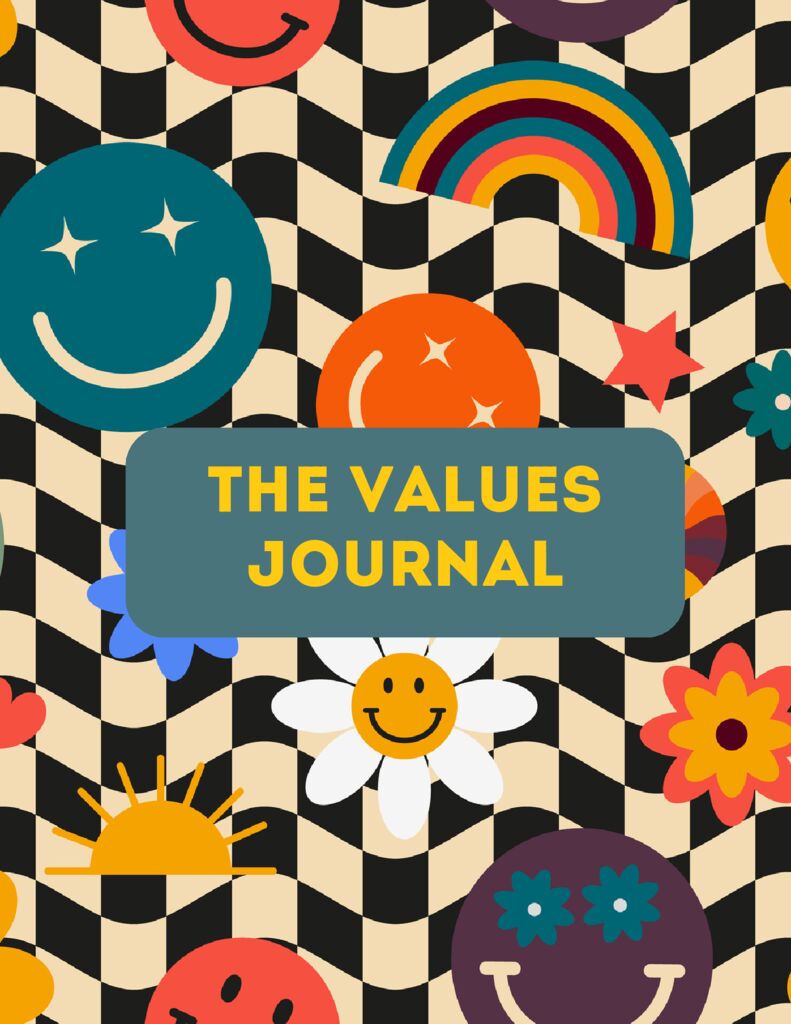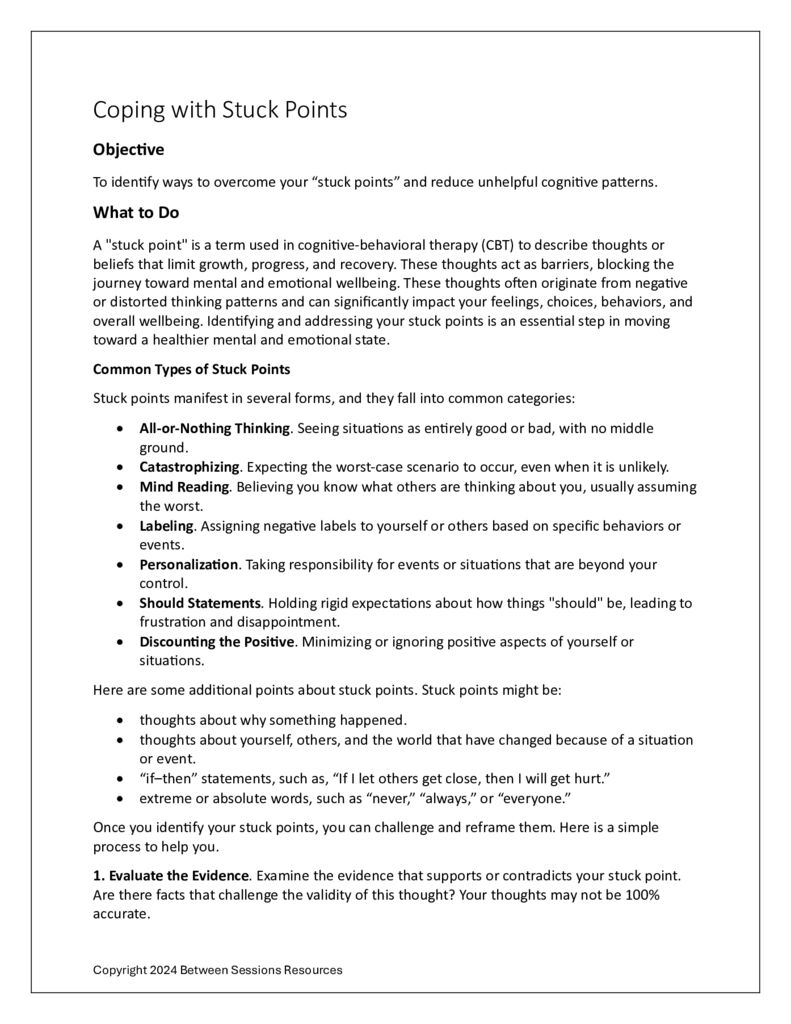Rejection Sensitivity Dysphoria (RSD) is an extreme emotional reaction to perceived or actual rejection, criticism, or failure. People who experience RSD may feel overwhelming sadness, anger, or shame in response to situations where they believe they are being criticized or rejected—even if this belief is inaccurate. The worksheet includes a checklist for people to determine if they have RSD, a list of coping techniques, questions to help people understand their RSD, and a recording form to help people keep track of the effectiveness of the techniques they try. (0924, social anxiety, relationships)
This worksheet is designed to help adults set boundaries on their news media and social media so they don’t become overwhelmed by the constant flow of news. The worksheet provides specific recommendations for people to track and limit their media time and includes a chart to help them keep track of their time, the platforms they use, and their moods. (0724. media, social media, anxiety, depression)
Sometimes clients may be resistant to therapy or counseling because of previous negative experiences in getting help. This worksheet asks clients to think about their concerns, including increased vulnerability, fear of emotional dependence, financial strain, and so on. It presents questions for the clients to help them determine how past experiences might affect their current commitment to growth and change. (0424, growth, progress, trauma)
This worksheet encourages people to explore how they deal with ambivalence in their lives thinking about the pros and cons and the consequences of making changes. It also helps people identify the barriers to change and consider how they can be overcome. (0424, depression, anxiety, relationships, decisions, problem-solving, CBT)
This worksheet challenges people to test their beliefs about their problems by trying new behaviors. The worksheet takes people through a systematic approach to trying new behaviors, including anticipating challenges and obstacles, observing changes, and analyzing the results of the “experiment.” (0424, behaviors, solution-oriented therapy, CBT)
This approach to increasing optimism is based on Solution-Focused Brief Therapy (SFBT). The worksheet is designed to increase motivation, shift a person’s focus from problems to possibilities, stimulate creative thinking, and more. (0424, hope, depression, Solution Focused Therapy, agency)
This worksheet is from Solution-Focused Brief Therapy (SFBT) and is designed to help people apply strengths they have used in solving past problems to their current situations. The worksheet explains why this process can be so helpful and presents a series of questions to explore how past solutions have helped. (0324, solution-focused therapy, problem-solving, decision-making)
The Miracle Question is a powerful tool used in Solution-Focused therapy to bypass limitations and obstacles. It involves imagining an ideal future where all your problems are solved and your goals are achieved. Then, you identify the steps to make this vision a reality. This worksheet introduces the concept of the Miracle Question as it pertains to personal growth, relationships, career, health, and well-being. (0324. solution-focused, SFBT)
This 60-page journal encourages people to explore their values and how they affect their day-to-day choices and behaviors. This is a great way to combine the techniques of values clarification and journaling. The journal can either be downloaded and printed out or filled out online using our Psychology Forms Filler or Virtual Counseling Rooms. (0224, journal, ACT, Acceptance and Commitment Therapy).
A “stuck point” is a term used in cognitive-behavioral therapy (CBT) to describe thoughts or beliefs that limit growth, progress, and recovery. These thoughts act as barriers, blocking the journey toward mental and emotional well-being. This worksheet explains common types of “stuck points” such as mind-reading, personalization, “should” statements, and so on. People are asked to identify their dysfunctional thinking and how it affects their emotions and behaviors. (0124. CBT. cognitive behavior therapy, irrational thoughts).



